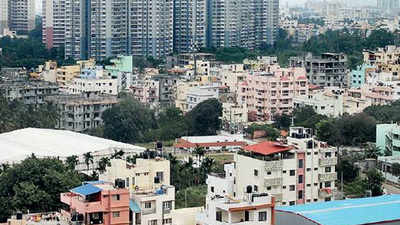The Hindu 28.02.2011
MCC unable to recover water bill arrears
Officials hope the PPP model will improve maintenance
The Mangalore City Corporation’s proposal to go for round-the-clock
drinking water supply in select wards through public-private-partnership
(PPP) on a pilot basis appears to have some justification considering
the fact that its water bill collection stands at only 52.64 per cent.
A note circulated at the press conference of the
outgoing Mayor Rajani Dugganna here on Friday said that the water bill
demand at the end of January 2011 stood at Rs. 29.37 crore. Of this, the
civic body has collected Rs. 15.46 crore. Hence the percentage of bill
collection stands at 52.64 per cent, it said.
An official in the water supply section in the civic body told The Hindu
that though its total water bill arrears stood at Rs. 13.91 crore. The
corporation was not in a position to recover Rs. 4.14 crore. Hence in
reality it could collect Rs. 9.77 crore.
Regarding Rs. 4.14 crore, the official said the council
had passed a resolution to waive off Rs. 2.38 crore bill of Kannur Gram
Panchayat and the State Government had decided to waive off Rs. 76 lakh
bill of Mangalore Chemicals and Fertilisers Limited (MCF). Of the
balance, Rs. 70 lakh bill pertained to those consumers whose water
supply connections had been cut off for not paying the bill. The civic
body was finding it difficult to recover this amount as owners of many
such properties which had those connections had sold them. In addition,
Rs. 30 lakh bill belonging to various government offices was in dispute.
A senior official in-charge of administration at the
corporation admitted that there should be an “un-holy alliance” between
bill collectors and some consumers. If not how could an amount to the
tune of Rs. 70 lakh (part of Rs. 4.14 crore) from consumers remain? he
asked.
The official admitted that introducing round-the-clock water supply was nothing but “partial privatisation” of water supply.
He said he was hopeful that this would put an end to
such “unholy alliances’ as the private party in-charge of water supply
and bill collection would ensure proper revenue collection. It would put
an end to unauthorised connections and uneven distribution of water
supply.
The official hoped that the PPP model would help in
proper maintenance of distribution system as water supplier would have
to provide quality service for what consumers pay. Otherwise the
distributors would be at the receiving end.
Thumbe vented dam is the main source of drinking water to the city.
According to the note, there were 71,949 water supply
connections in the jurisdiction of the civic body at the end of March,
2010. Of them 66,033 were house connections.

